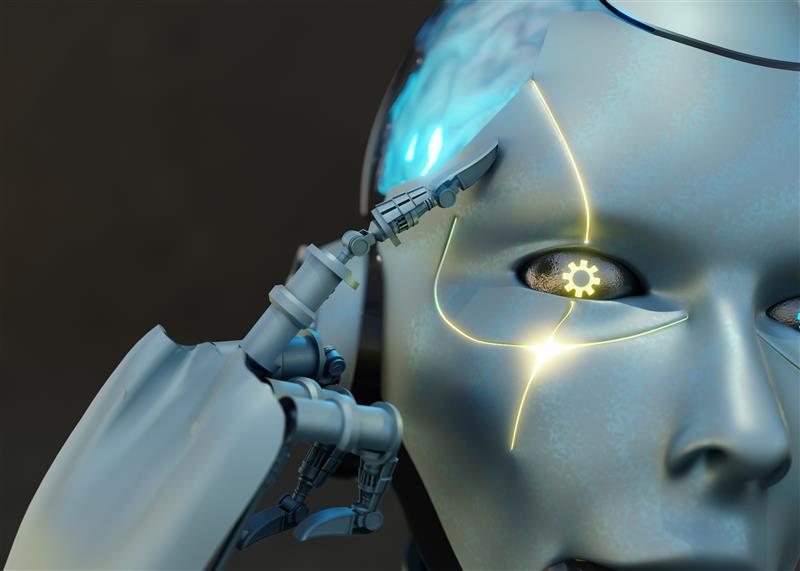The rapid pace of technological evolution is reshaping how modern businesses operate. Amid this transformation, one innovation stands out as particularly impactful: AI agents. These intelligent, goal-oriented software entities, driven by advancements in AI agent development, are redefining productivity, automating complex workflows, and enabling enterprises to make faster, data-driven decisions.
As organizations increasingly look for ways to improve operational efficiency, reduce costs, and stay ahead of the competition, AI agents have emerged as powerful tools with the potential to drive significant outcomes. At Ariel Software Solutions, we believe that AI agents are not just a trend; they represent the future of intelligent enterprise automation.
This blog serves as a foundational guide for business leaders, decision-makers, and IT stakeholders seeking to understand what AI agents are, how they function, and how they can be strategically implemented to create value across departments.
What Are AI Agents?
An AI agent is a software-based system that can perceive its environment, process inputs, make decisions, and perform actions autonomously to achieve specific objectives. Unlike rule-based systems or basic automation bots, AI agents are adaptive, context-aware, and often capable of learning from their experiences.
In simpler terms, an AI agent acts much like a virtual assistant, but one that can independently complete tasks, adjust its behavior over time, and collaborate with humans and other systems in dynamic environments.
Key Capabilities of AI Agents:
- Autonomous decision-making
- Real-time environment interaction
- Machine learning and reinforcement learning
- Goal-driven task execution
- Integration with enterprise software systems
These capabilities enable AI agents to not only follow predefined scripts but also to evolve and improve their performance based on historical data and ongoing feedback.
AI agents are only as effective as the systems they connect with. A seamless API infrastructure ensures that your intelligent agents communicate efficiently across platforms. Discover practical insights in our post “E-commerce API Integration: The Secret to Building Stores That Never Break,” where we detail how robust API design strengthens automation and business continuity.
AI Agents vs Traditional Automation Tools
To understand the significance of AI agents, it’s important to distinguish them from traditional automation tools such as RPA (Robotic Process Automation) bots or scripted chatbots. While both serve to automate tasks, their design and intelligence levels differ substantially.
| Feature | Traditional Bots | AI Agents |
|---|---|---|
| Rule-Based Logic | Yes | No |
| Adaptability | Limited | High |
| Learning Ability | None | Yes (ML/RL-based) |
| Context Awareness | Minimal | Contextual and dynamic |
| Autonomy | Low | High |
| Use Case Complexity | Simple repetitive tasks | Complex, evolving scenarios |
This distinction is critical when designing intelligent enterprise systems. Traditional automation may work for static, repetitive tasks, but AI agents are ideal for processes that require adaptability, decision-making, and interaction with variable data inputs.
Business Applications of AI Agents
AI agents are not limited to any one domain. Their use is expanding across industries, and organizations are now deploying them for a wide range of applications, each designed to streamline operations and create measurable business value.
- Customer Support and Engagement
AI agents can handle customer queries, route support tickets based on urgency, and even provide personalized resolutions by learning from past interactions. Unlike basic chatbots, these agents continuously improve, resulting in better customer experiences and reduced response times.
- Finance and Accounting Automation
In financial workflows, AI agents are used to identify anomalies, automate reconciliation, process invoices, and deliver real-time financial insights. Their ability to detect patterns and act proactively makes them indispensable in finance functions.
- IT Operations (AIOps)
AI agents play a vital role in IT operations by monitoring infrastructure health, predicting system failures, triggering alerts, and sometimes even executing remediation protocols without human intervention. This form of intelligent automation reduces downtime and improves IT resilience.
- Sales and Marketing Optimization
From automating lead scoring and outreach to running personalized campaigns, AI agents help sales and marketing teams operate with greater precision and agility. By analyzing customer data in real time, these agents recommend actions that are more likely to convert leads into customers.
For organizations aiming to serve a global customer base, AI agents paired with translation tools can create immersive, multilingual digital experiences. Learn how this works in practice through our blog, “From Confusing to Clear: Build Seamless Multilingual Websites with Google AI Translation”, where we explore how AI-powered translation simplifies web localization at scale.
Benefits of AI Agents for Enterprises
Implementing AI agents within business processes brings measurable benefits that go beyond efficiency gains. These agents help organizations move toward scalable, intelligent systems that are capable of self-improvement and adaptive learning.
- Cost Efficiency
AI agents reduce the need for manual labor in repetitive tasks, resulting in significant cost savings over time. They also reduce the likelihood of human error, particularly in data-heavy or high-stakes environments.
- Enhanced Decision-Making
By analyzing large datasets in real time, AI agents offer actionable insights and recommendations. This allows business leaders to make informed decisions faster and with greater confidence.
- Round-the-Clock Productivity
AI agents operate 24/7, ensuring continuous service delivery without the limitations of human fatigue or work hours. This is particularly useful for global businesses operating across multiple time zones.
- Scalability and Flexibility
As business needs grow, AI agents can be trained or configured to handle additional tasks or integrate with new systems, making them a long-term, scalable investment.
What Powers an AI Agent?
The architecture of a typical AI agent includes multiple components, each contributing to its intelligence and decision-making ability.
- Perception Layer: Collects data from internal or external sources (e.g., databases, APIs, sensors).
- Cognition/Decision Layer: Applies machine learning or logic-based models to evaluate options.
- Action Layer: Executes tasks based on insights derived from the decision layer.
- Feedback Loop: Continuously improves performance through reinforcement learning or supervised feedback.
Technologies used in building AI agents often include frameworks such as LangChain, AutoGPT, OpenAI APIs, Google Vertex AI, and TensorFlow. These tools allow developers to create agents capable of understanding natural language, interpreting data, and carrying out complex sequences of actions autonomously.
Considerations Before Deploying AI Agents
Despite their many benefits, AI agents require thoughtful planning and execution. Below are key considerations to ensure a successful implementation:
- Data Security
Since AI agents often access sensitive information, ensuring data privacy and cybersecurity compliance is essential. Proper encryption, access control, and data governance protocols must be in place.
- System Integration
Integrating AI agents into existing systems, such as CRMs, ERPs, or custom software platforms, may require API development or middleware solutions. It is critical to assess compatibility and scalability from the outset.
- Human Oversight
AI agents should be designed to work alongside humans, not in isolation. Organizations must clearly define the responsibilities of the agent versus those of the human operators to avoid confusion and maximize productivity.
Why Choose Ariel Software Solutions for AI Agent Development?
As the demand for intelligent automation continues to grow, choosing the right technology partner becomes critical. At Ariel Software Solutions, we bring deep expertise, a consultative approach, and a strong track record in developing AI agent solutions tailored to real-world enterprise challenges.
We don’t offer one-size-fits-all platforms. Instead, we focus on custom AI agent solutions, crafted to align with your specific industry, operational workflows, and long-term strategic goals. Whether you’re starting with a simple proof of concept or looking to scale enterprise-wide AI deployment, we support you at every stage of the journey.
- End-to-End AI Development Expertise
Our AI services go beyond just building intelligent agents. We offer comprehensive solutions, from identifying the right use cases and data pipelines to designing, training, deploying, and maintaining AI agent development within your existing systems. This ensures your investment in AI-powered solutions delivers measurable ROI from day one.
- Seamless Integration with Enterprise Ecosystems
AI agents can only be successful if they work in harmony with your core systems, whether it’s your CRM, ERP, cloud platforms, or custom-built applications. Our developers have extensive experience with enterprise integration and API development, ensuring your AI-powered solutions operate fluidly across your digital landscape.
- Scalable, Secure, and Adaptive AI Solutions
In every AI agent development, we design it to be
- Scalable: Ready to grow with your business and data volume.
- Secure: Developed with industry best practices in cybersecurity and data governance.
- Adaptive: Able to learn, evolve, and improve over time through machine learning and user feedback.
This balanced approach ensures your AI-powered solutions remain efficient, reliable, and future-ready.
- Industry-Agnostic AI Capabilities
We’ve worked with clients across industries, finance, healthcare, logistics, retail, education, and manufacturing, to implement AI-powered solutions that solve specific pain points. Whether you’re streamlining supply chain operations or enhancing digital customer support, our solutions are customized for your domain.
- Transparent Collaboration and Agile Execution
We believe in building solutions with our clients, not just for them. Through agile delivery models, continuous feedback loops, and transparent communication, we ensure that your AI agent development vision is always reflected in the final product. Our cross-functional teams collaborate closely with your internal stakeholders to accelerate deployment and adoption.
Partner with Us to Unlock the Full Potential of AI Agents

At Ariel Software Solutions, we view AI not just as a tool but as a strategic enabler of transformation. If your organization is exploring how to automate processes, improve decision-making, or create smarter customer experiences, AI agent development is the way forward, and we’re here to help you lead the way.
Ready to bring AI-powered solutions to life in your organization?
Get in touch with our AI experts today to schedule a consultation or request a tailored demo.
Frequently Asked Questions (FAQs)
1. What are AI agents, and how do they work?
AI agents are intelligent software systems that perceive their environment, make decisions, and act autonomously to achieve goals. Unlike traditional bots, they can learn, adapt, and improve over time.
2. How is AI agent development different from regular automation?
AI agent development focuses on building adaptive, learning-based systems, whereas traditional automation relies on static rules. AI agents can handle complex, changing scenarios and improve decision-making.
3. What are some real-world uses of AI-powered solutions in business?
AI-powered solutions like AI agents are used in customer service, IT operations, finance automation, and marketing. They help businesses respond faster, reduce costs, and enhance overall efficiency.
4. Are AI agents secure for enterprise use?
Yes, with proper data governance, encryption, and access controls, AI agents can operate securely within enterprise ecosystems while maintaining compliance standards.
5. How can my company get started with AI agent development?
Begin by identifying areas where automation could have the most impact. Then partner with experts like Ariel Software Solutions to design, build, and deploy customized AI agents tailored to your operations.




